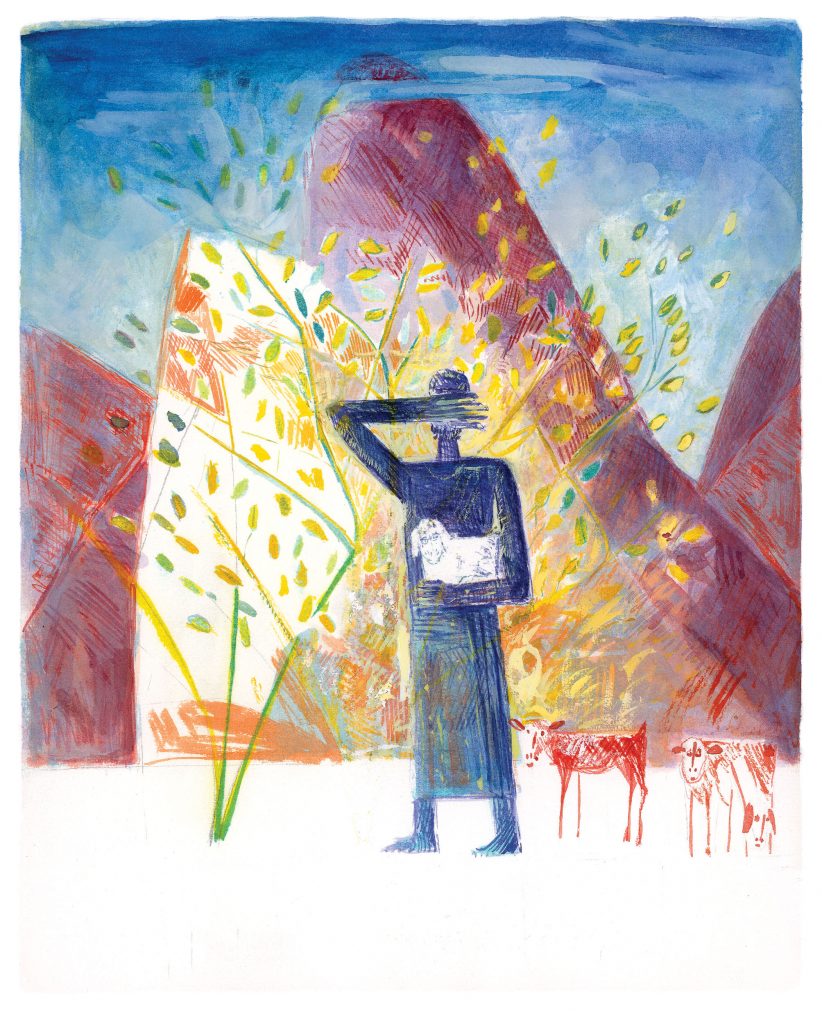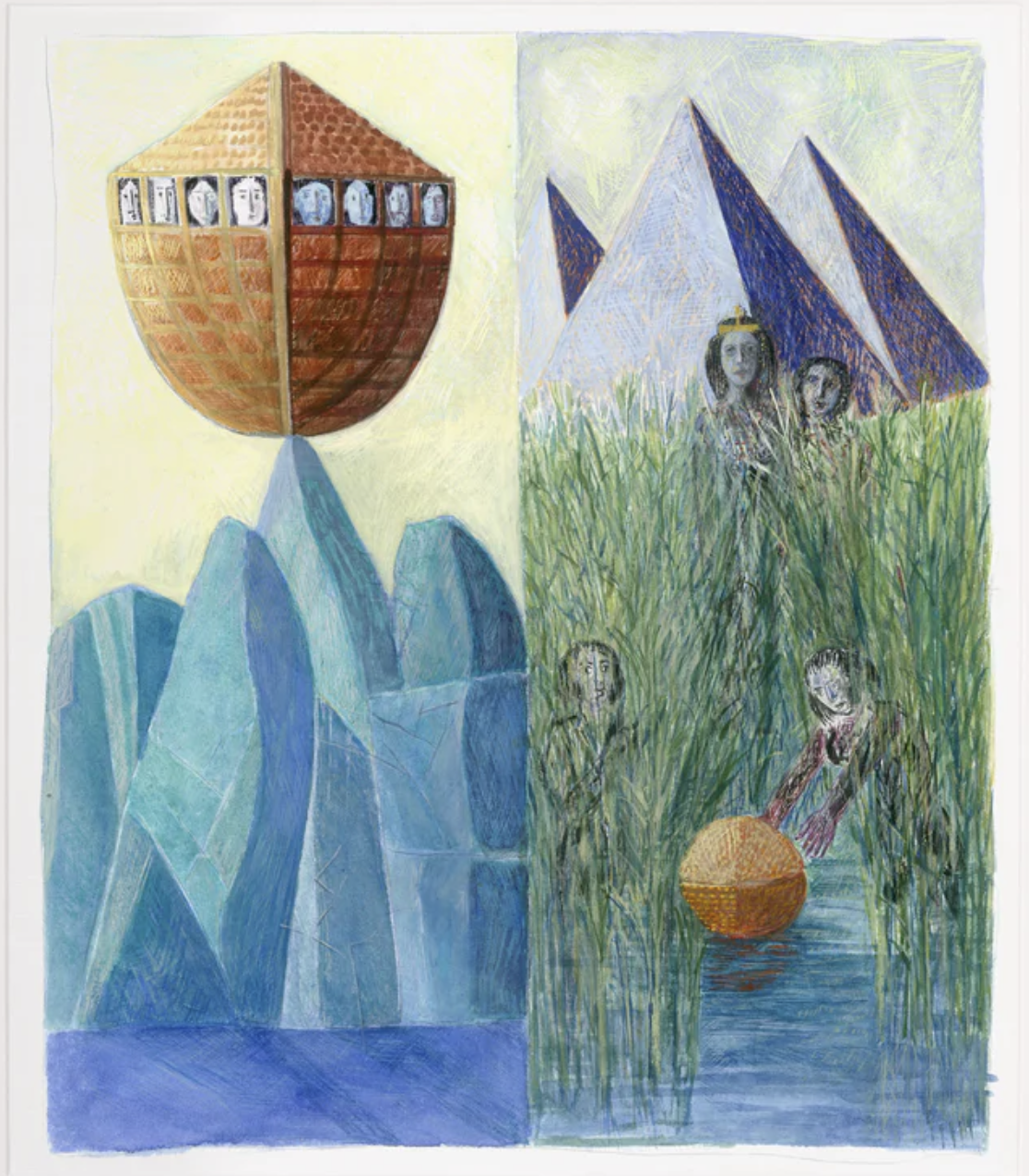Torah Study Date
Saturday, February 18, 2023
Verses Covered
Exodus (Sh’mot) 3:1-6
Next Session
Saturday, February 25, 2023
Starting at Exodus 3:7
Previously, we discussed the Egyptian King dying, the Israelites groaning under hard labor, God hearing them, remembering his covenant with Abraham, Isaac, and Jacob, and knowing.
Last week, we discussed Moses shepherding for his father-in-law, Jethro (previously called Reuel), the priest of Midian, and coming to the Mountain of God, Horeb. We thought the father-in-law’s name change indicates two different source texts, noted that the Mountain of God foreshadows what is to come, namely, God’s revelation on that mountain, wondered if it was holy only because of the revelation-to-come or if it had been holy all along, and we noted the pun on the word for bush (sneh) and the word for God’s mountain (Sinai), indicating they are two places of holiness.
We discussed an angel or messenger of YHVH appearing to Moses in a fire’s flame inside the bush, Moses looking and, wow, the bush was burning in the fire but the bush was not consumed, Moses saying to let him turn and see the great sight and asking why the bush doesn’t burn. We discussed many points: how long does a bush take to burn, what type of bush is it (maybe a blackberry bramble), does the angel have wings as portrayed by some artists (not likely since winged angels in Tanach come later), is the angel/messenger in the fire’s flame in the bush or does the angel/messenger just appear to be in it.
We discussed YHVH seeing Moses turn to see and calling to him from inside the bush (whereas, above, it is an angel/messenger who at least appears to Moses in a fire’s flame inside the bush—so is it a messenger or YHVH inside the bush?). We discussed him saying, Moses, Moses, and Moses replying, Here I am (hineni). We noted the doubling of the name is formulaic for a call (as seen with Abraham and Isaac). We remembered a midrash that asks, why does God appear in a lowly bush, and answers, to indicate that God is everywhere, even in a lowly bush (meaning that God is everywhere).
We discussed YHVH telling Moses not to come close and to take his shoes from his feet because the place where he is standing is holy ground. We wondered what makes the ground holy and thought it is holy because YHVH is there. We discussed taking off shoes as a sign of respect or humility and possibly a legal aspect of turning the land over to YHVH (lifting the foot from the land vs. stomping a foot on the land indicating relinquishment of the land vs. taking the land). In either case, the land becomes YHVH’s, not Moses’. We discussed Moses hiding his face because he was afraid of looking at God and took note of the fact that Moses was described as afraid once before, afraid of Pharaoh’s reaction to him killing the Egyptian, and that the fear led to Moses leaving for Midian. We noted that the fear described is yireh in each case. We took note of a certain amount of passivity in Moses and of his anger and fear generating the action of the story. We also reflected back on the first mention of Moses in the Torah, that he descends from Levi, who was violent, as Moses is violent with the Egyptian and later will be violent in smashing the tablets.
Our artwork this week is by Jewish Israeli artist, Avner Moriah (1953- ), Moses, the Good Shepherd (above), and Basket with Moses/Noah’s Ark (below). Moses, the Good Shepherd shows two aspects of Moses, first, that he is a good shepherd as indicated by, according to legend, him holding a sheep that got away, and second, that he fears YHVH as indicated by him covering his face. Behind him is the burning bush (sneh) and behind the bush is Mt. Horeb (Sinai), the two sites of revelation. In the two juxtaposed paintings, Noah’s ark and Moses’ basket look similar in order to indicate that the same Hebrew word (teva) is used for each of them and that Jews would be saved from extinction in each case, in one case extinction from a flood caused by YHVH and in the other from murder by Pharaoh.


